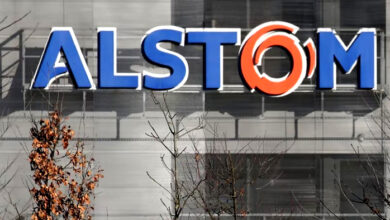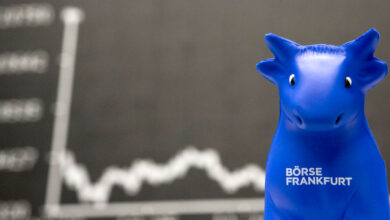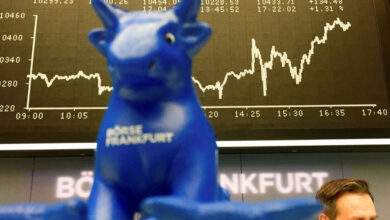Asian Stock Markets Decline as Concerns of Rate Hike Grow Ahead of Nonfarm Payrolls

Asian stocks took a tumble as worries about a possible rate hike intensified ahead of the release of nonfarm payrolls data. The trading day witnessed a sharp decline across most Asian markets as concerns over rising interest rates grew. Investors closely watched the robustness of the U.S. labor market, which raised speculations about a more aggressive approach from the Federal Reserve in raising interest rates and tackling inflation. As a result, the dollar and U.S. bond yields gained momentum, putting pressure on stock markets in the region.
Following the negative sentiment from Wall Street, Asian markets started the day on a weak note. U.S. stocks had experienced significant losses overnight after private payrolls data for June exceeded expectations by a considerable margin. The report showcased the resilience of the U.S. labor market, fueling worries that the Federal Reserve might take stronger measures to address rising interest rates and inflation.
The concerns carried over to the nonfarm payrolls data scheduled for release later in the day. With the technology sector taking a hit, Asian markets felt the brunt of the fears surrounding the Federal Reserve’s actions. Hong Kong’s Hang Seng index and South Korea’s KOSPI were among the worst performers, both down by 1% and 1.3% respectively. The KOSPI faced additional pressure due to losses in Samsung Electronics Co Ltd (KS:005930). The conglomerate reported a significant decline in second-quarter earnings, primarily driven by weak global chip demand. Consequently, Samsung’s shares plummeted by 2.2%, dragging down other chipmaking stocks in its wake.
The downward trend extended to other technology-heavy Asian markets. Japan’s Advantest Corp (TYO:6857) saw a decline of 0.9%, while chipmaker SK Hynix Inc (KS:000660) dropped by 1.4%. The rise in interest rates weakened the appeal of tech stocks, as future returns from the sector seemed less enticing compared to the relatively safer returns offered by government debt.
The broader Asian markets faced retreats as worries mounted regarding capital inflows being constrained by rising interest rates. Japan’s Nikkei 225 fell by 0.2%, while the TOPIX shed 0.4%, both experiencing a decline from their recent 33-year highs. China’s Shanghai Shenzhen CSI 300 and Shanghai Composite indexes followed suit, falling by 0.6% and 0.4% respectively. Weak economic readings in China over the past week added to concerns, dampening the outlook for the region’s largest economy. These concerns weighed heavily on Australia’s ASX 200 index, which suffered a significant drop of 1.4%.
In contrast to the general trend, Indian stocks outperformed their Asian counterparts, reaching record highs for the week. The benchmark Nifty 50 and BSE Sensex 30 indexes recorded consecutive highs, each surging by approximately 1.6% throughout the week. Optimism surrounding the Indian economy, combined with a positive earnings outlook for blue-chip firms, attracted significant foreign investment into the local stock market during the past quarter. However, analysts cautioned that Indian stocks might experience some consolidation in the upcoming third quarter.
Overall, the Asian markets experienced a sharp decline as concerns about rising interest rates loomed large. The robustness of the U.S. labor market fueled worries that the Federal Reserve might adopt a more aggressive stance, leading to increased pressure on stock markets in the region. Technology-heavy indexes, such as Hong Kong’s Hang Seng and South Korea’s KOSPI, bore the brunt of the negative sentiment, while Indian stocks bucked the trend, reaching new heights amid optimism about the Indian economy.





